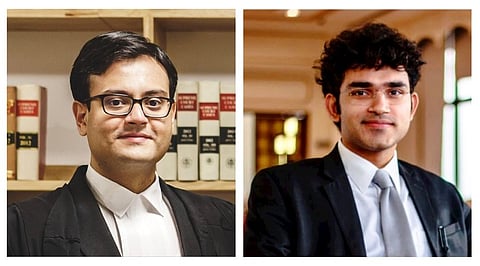
- News
- Columns
- Interviews
- Law Firms
- Apprentice Lawyer
- Legal Jobs
- हिंदी
- ಕನ್ನಡ

Amit George and Rishabh Dheer
The enactment of the Arbitration and Conciliation (Amendment) Act, 2015 has resulted in the introduction of certain stringent and objective parameters for determining the independence and impartiality of an arbitrator.
The fifth schedule and the seventh schedule of the Arbitration and Conciliation Act, 1996 now postulate various criteria for determining independence and impartiality of arbitrators.
As explained by the Supreme Court in HRD Corporation (Marcus Oil and Chemical Division) v. Gail (India) Limited [2018 (12) SCC 471], the existence of circumstance(s) falling within the seventh schedule immediately renders a person ineligible to act as an arbitrator. In the case of circumstance(s) falling within the fifth schedule, the same can be made the basis for an application seeking recusal to be filed before, and considered by, the arbitrator concerned.
Inasmuch as they are key to the determination of the independence and impartiality of an arbitrator, and his/her confirmation and/or continuance, it is but natural that each individual criterion listed in the two schedules would be the subject matter of contestation between the parties, and ultimately of adjudication by the courts.
As a result of the somewhat nebulous language employed therein, there has been some confusion as to the literal meaning of one such criterion, viz. the past appointments of an arbitrator by one of the parties concerned. The said item no. 22 of the fifth schedule to the Arbitration Act is as under:
“22. The arbitrator has within the past three years been appointed as arbitrator on two or more occasions by one of the parties or an affiliate of one of the parties.”
At the outset, it may be noted that in Sudesh Prabhakar and Ors. v. EMAAR Constructions Pvt. Ltd. [2018 (2) Arb. LR 538 (Delhi)], the High Court of Delhi, while relying on HRD Corporation (supra), has held that even an arbitrator who has been appointed on two or more occasions by a party or its affiliates in the past three years, may yet not be disqualified if it is demonstrated that he/she was independent and impartial on the earlier two occasions.
Be that as it may, while examining the existence of the circumstance contemplated by item 22, the use of the phrase “two or more occasions” results in certain ambiguity inasmuch as it is not textually clear whether the appointment in the second arbitration is also to be counted as part of the ‘two occasions’ contemplated by item 22 while determining independence and impartiality in the said second arbitration.
For instance, if Mr. X has been appointed or is proposed to be appointed by party A as an arbitrator in January 2019 (second arbitration) and it transpires that he had also been appointed by the said party A in January 2018 (first arbitration), then while determining his independence and impartiality in the second arbitration, would Mr. X already be said to have fallen afoul of item 22? Or is it the case that only if Mr. X is then proposed to be appointed for a third time as an arbitrator by party A, that the said circumstance can be said to have been attracted?
The Supreme Court in HRD Corporation (supra) has briefly addressed this issue while dealing with a related argument and held as under:
“24. … It has also been argued by learned Counsel appearing on behalf of the Respondent that the expression “the arbitrator” in Item 16 cannot possibly mean “the arbitrator” acting as an arbitrator, but must mean that the proposed arbitrator is a person who has had previous involvement in the case in some other avatar. According to us, this is a sound argument as “the arbitrator” refers to the proposed arbitrator. This becomes clear, when contrasted with Items 22 and 24, where the arbitrator must have served “as arbitrator” before he can be disqualified.”
The Supreme Court therefore seems to indicate that it is only upon a person having already been appointed as an arbitrator on two past occasions by a party, being then approached for a third appointment by the same party, all within a span of three years, that item 22 can be said to have been attracted.
Putting the matter beyond the pale of any controversy, the High Court of Delhi in its judgment in Kunwer Sachdev v. Hero Fincorp Limited [O.M.P. (T) (COMM.) 9/2019] has squarely addressed the issue at hand and held that it is only the effective third appointment as an arbitrator that attracts item 22. The Court held in this regard as under:
“12.1 Besides this, even if I were to hold that the amended 1996 Act applies, a perusal of the Arbitrator’s declaration dated 12.12.2018 shows that he has been appointed as an Arbitrator by the respondent in only one more case apart from the matter in issue. The Fifth Schedule of the amended 1996 Act which sets out the grounds which could give rise to justifiable doubts as to an arbitrator’s independence or impartiality under Clause 22 requires a red flag to be raised when a person within the past three years has been appointed as an Arbitrator on two or more occasions by one of the parties or its affiliate; clearly this position does not obtain in the instant case.”
While the discussion over the ultimate scope and purport of item 22 leaves room for much judicial adjudication in the future, the aforesaid decisions have provided clarity as to the literal meaning of the text of item 22.
Amit George and Rishabh Dheer are lawyers practicing in the Delhi High Court.
Members of the Nani Palkivala Arbitration Arbitration Centre (NPAC) will be writing a weekly column for Bar & Bench analyzing the latest developments on the law of arbitration.